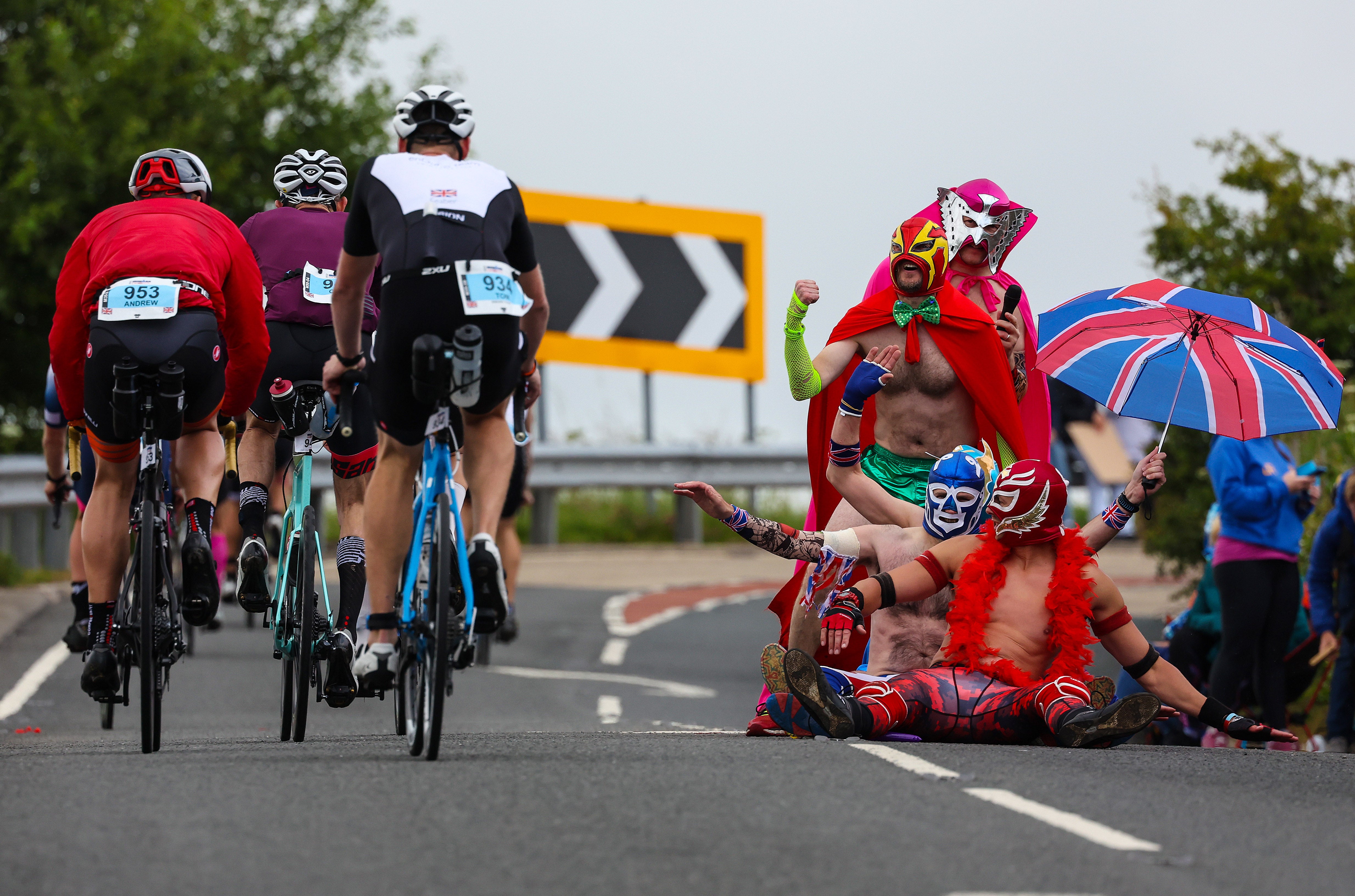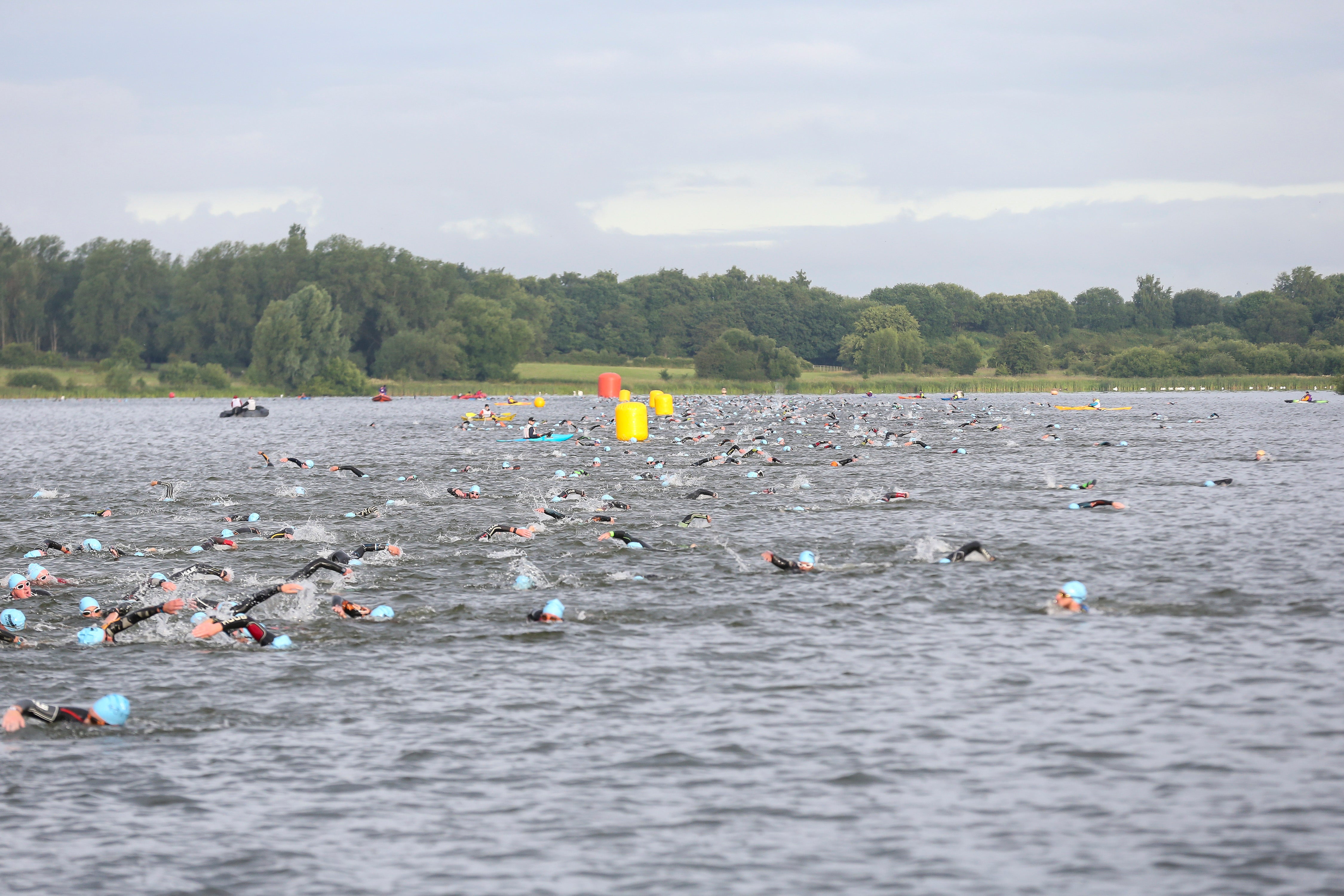‘Horrible and somehow joyous’: What it’s really like doing an Ironman
The truth is that crossing that finishing line taught me nothing. But getting there changed everything

Your support helps us to tell the story
From reproductive rights to climate change to Big Tech, The Independent is on the ground when the story is developing. Whether it's investigating the financials of Elon Musk's pro-Trump PAC or producing our latest documentary, 'The A Word', which shines a light on the American women fighting for reproductive rights, we know how important it is to parse out the facts from the messaging.
At such a critical moment in US history, we need reporters on the ground. Your donation allows us to keep sending journalists to speak to both sides of the story.
The Independent is trusted by Americans across the entire political spectrum. And unlike many other quality news outlets, we choose not to lock Americans out of our reporting and analysis with paywalls. We believe quality journalism should be available to everyone, paid for by those who can afford it.
Your support makes all the difference.One thing about doing an Ironman: it is deeply horrible. Another thing about doing an Ironman: it’s very far and it lasts for ages, that horribleness stretched out over more than 140 miles that can take as long as 17 hours. And the last thing, which still doesn’t make much sense, even to me: it was one of the most joyous experiences of my life.
The journey to doing an Ironman probably started four years ago, in summer 2019, when for very little reason I decided to do a sprint triathlon with two weeks’ training. I enjoyed it so much that a couple of months later I ran a marathon with seven weeks’ training. It started to dawn on me that I actually quite liked doing these things, but that it might be nice to actually prepare for one for once.
Then, a few months later, came the pandemic and lockdown. Being stuck in one place made me realise how much I truly loved to move, and I spent those early days of the pandemic exercising. Something about those first forays into endurance events had stuck with me, and I’d run another marathon and become obsessed with cycling in the meantime. And so I resolved that I would start getting ready for probably the biggest endurance event there is: the Ironman.
An Ironman is a very different beast to the previous events I’d done: the bike ride is nine times as long as the one in a sprint triathlon, and you run a marathon only after having swum 2.4 miles and cycling 112 miles. I resolved to train for it very differently too – that is, by actually training.
And so began eight and half months of training, which amounted to 300 hours of swimming, biking and running, during which I traversed 3,500 miles. It was a long trudge of early morning stationary bike rides, runs in the cold and dark of winter, and weary walks to the swimming baths and back. And I loved it.
The final day arrived in July, in Bolton, which I’d chosen because it is relatively close by and meant avoiding plane travel. What I hadn’t realised is that the event I’d turned up to was a notorious Ironman that had a reputation for being especially difficult (even for an Ironman, which is said to be one of the hardest one-day sporting events there is). The day was all lashing rain and tiredness – but the indefatigable friendliness of the people of Bolton and the support of friends and family meant nothing ever hurt too much.

About 14-and-a-half hours after I had dived into a cold lake in Greater Manchester, panicked I couldn’t swim, fished myself out the water and jumped on a bike, been battered by winds on the top of the Lancashire Moors, and then conducted something that was ostensibly a “run” (but ended more like a plod) it was all over. A man was reading out my name and saying the four words that every triathlete supposedly wanted to hear: “you are an Ironman”.
Everyone talks about how great that finishing line feels. And it does. But at least initially it is more like a very profound relief than it is anything like joy. I wish I could tell you that I came to understand some great wisdom in that moment; that the suffering had brought with it new knowledge. But I was almost too tired to think, let alone think deeply. “It’s time to stop running now,” I tell myself, and in doing so I use up all the remaining energy I have left in my brain. I’m wrapped in a foil sheet and given a slice of pizza, which I munch mindlessly, and then hobble into the arms of my partner and family.
It’s tempting to be disappointed that the finish line didn’t bring with it a great revelation. But then I realise that I’d already been blessed with it. The training and the realisation that it brings you are much the same: they occur not all at once but almost imperceptibly slowly, one per cent at a time, like water cutting through stone.

Every day through that training period in which I swam, rode and ran was a tiny transformation – too small even to notice. That was happening in my body, which was gradually getting fitter. But it was also happening in my mind, which was getting stronger just as gradually.
Some of the things I realised were physical and niche. My knowledge of electrolytes, calorie expenditure, energy systems and triathlon kit is more detailed than I’d ever thought possible. But much more of what I learned through the process of doing an Ironman was the kind of thing that sounds trite until you’re really forced to understand it.
The Ironman had taught me to trust myself as I might a friend: if my conscious mind thought about what I was doing, it was gripped by panic. But I learned that was entirely separate from the actual bits of my body and brain that would be doing the thing, and that I should just put the work in and leave them to it.
It made me realise that difficult challenges are often just things you aren’t ready for, and all you can do to deal with them is try and prepare yourself as best you can. I learned that my family and friends are remarkably tolerant of me unnecessarily causing both myself and them unnecessary suffering; I realised how grateful I am that that is the case. And I learned that often the struggle is a blessing: difficult though the Ironman and its training were, to be able to work that hard for fun is a joy.
The truth is that crossing that finishing line taught me nothing. But getting there changed everything.

Join our commenting forum
Join thought-provoking conversations, follow other Independent readers and see their replies
Comments